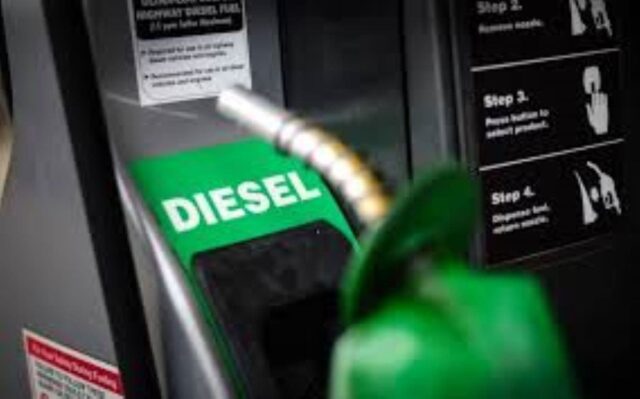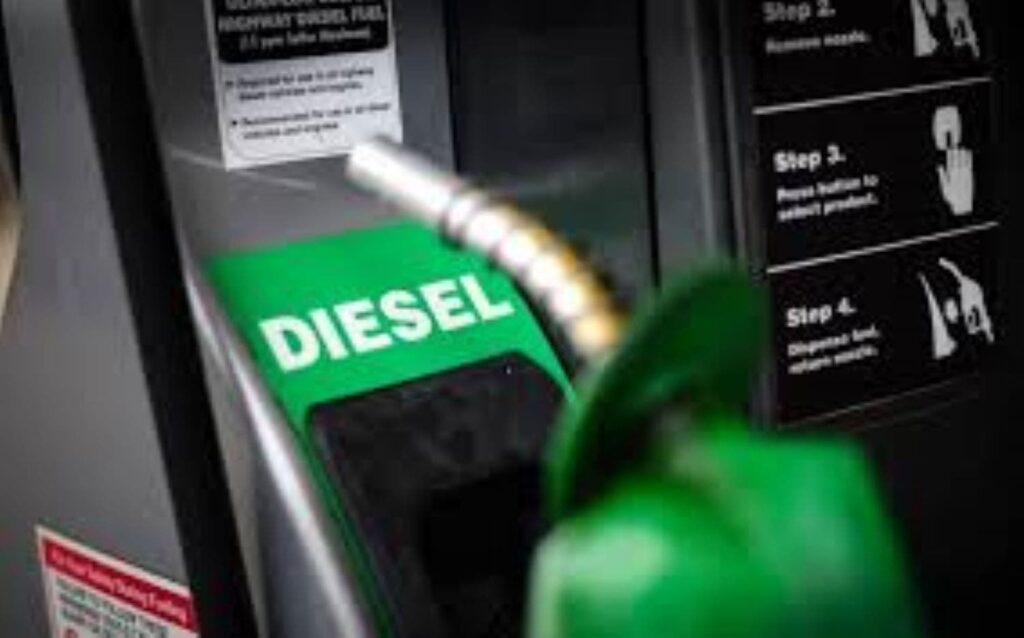Gift Joseph Okpakorese
Staff Writer
Just as most Nigerians are coming to terms with the debates and challenges of the past few months concerning the harsh realities of recession and the seeming prospects that the economy would gradually begin to stabilize, things however, have begun to take another negative turn as citizens groan under economic hardships due to the recent policies of the federal government and the incessant hike in prices of social amenities such as electricity, fuel, TV subscription as well as the rise in cost of goods and food items.
The recent issue that is causing ripples is the price of diesel in Nigeria.
The price of diesel in Nigeria has risen to a high of N250 per litre, as numerous businesses are on the receiving end especially due to the fact that most businesses run on alternative sources of power supply, due to lack of constant electricity.
According to correspondent and eye witness report, they observed that some filling stations in the ever busy state of Lagos, have already increased the price of the product to N250 per litre, and they were selling as such. Meanwhile, others sold it at between N220-N245.
Sources revealed that Northwest Petroleum along the Oshodi-Apapa road increased the pump price of diesel to N250 per litre; AP (Ardova Plc), along Airport road, Ikeja, N248; and Oando, along Acme Road, N240.
Meanwhile the National Bureau of Statistics, in its price of diesel in Nigeria report, stated that the average price paid by consumers for diesel increased by 0.22 per cent to N224.86 per litre in January 2021 from to N224.37 in December 2020.
Price of diesel in Nigeria (different states)
According to the statistics, it disclosed that states with the highest average price of diesel were Adamawa (N268.33), Zamfara (N262.78) and Kebbi (N257.50).
“States with the lowest average price of diesel were Osun (N194.60), Anambra (N195.83) and Enugu (N198.24),” the NBS added.
It is a given that crude oil price accounts for a large chunk of the final cost of petroleum products, and the deregulation of the downstream oil sector by the Federal Government means that the pump prices of the products will reflect changes in the international oil market.
The international oil benchmark, Brent crude, has risen by more than 25 per cent this year from the $51.22 per barrel at which it closed last year. It rose to $65.25 per barrel as of 6:30 pm Nigerian time on Tuesday.
The rate at which small and even large scale business owners are suffering the recent hike in price of diesel in Nigeria has made the President, Association of Small Business Owners of Nigeria, Mr Femi Egbesola, to cry out of the intense hardships this move has brought to various business enterprises within the federation.
“The price of diesel in Nigeria, and raw materials is giving us a nightmare. The price of diesel has been skyrocketing in a way that creates fear in particularly manufacturers,” he told news reporters. For him, it is indeed a very long and difficult tasks for businesses to factor all the increase in diesel price in their final product prices.
Egbesola recalled other negative consequences that are now becoming an offshoot of this decision and said; “That is why a lot of companies are downsizing and are making sure that they only produce products that they are so sure will sell in the market”.
“Many companies have reduced their product lines significantly just to be able to cope. And that is not good for us because by the time this goes on, unemployment will increase. I believe government should be able to do something about this.”…many small businesses’ savings had been eroded already because ‘we keep spending our savings to make sure we don’t close shop’… “If things continue this way, there is no way we are not going to close shop. We are still struggling with the recent increase in electricity tariff.
“Many small businesses still depend so much on diesel generators because there is no alternative power supply. It is only the big players that have the facilities to use gas. And we cannot use solar installation because it is very expensive.”
In all of these what is more baffling in the minds of many citizens is the fact that, Nigeria, despite being renowned as Africa’s largest oil producer, still relies majorly on importation for petrol and other refined products as its refineries have remained in a comatose state for many years.









